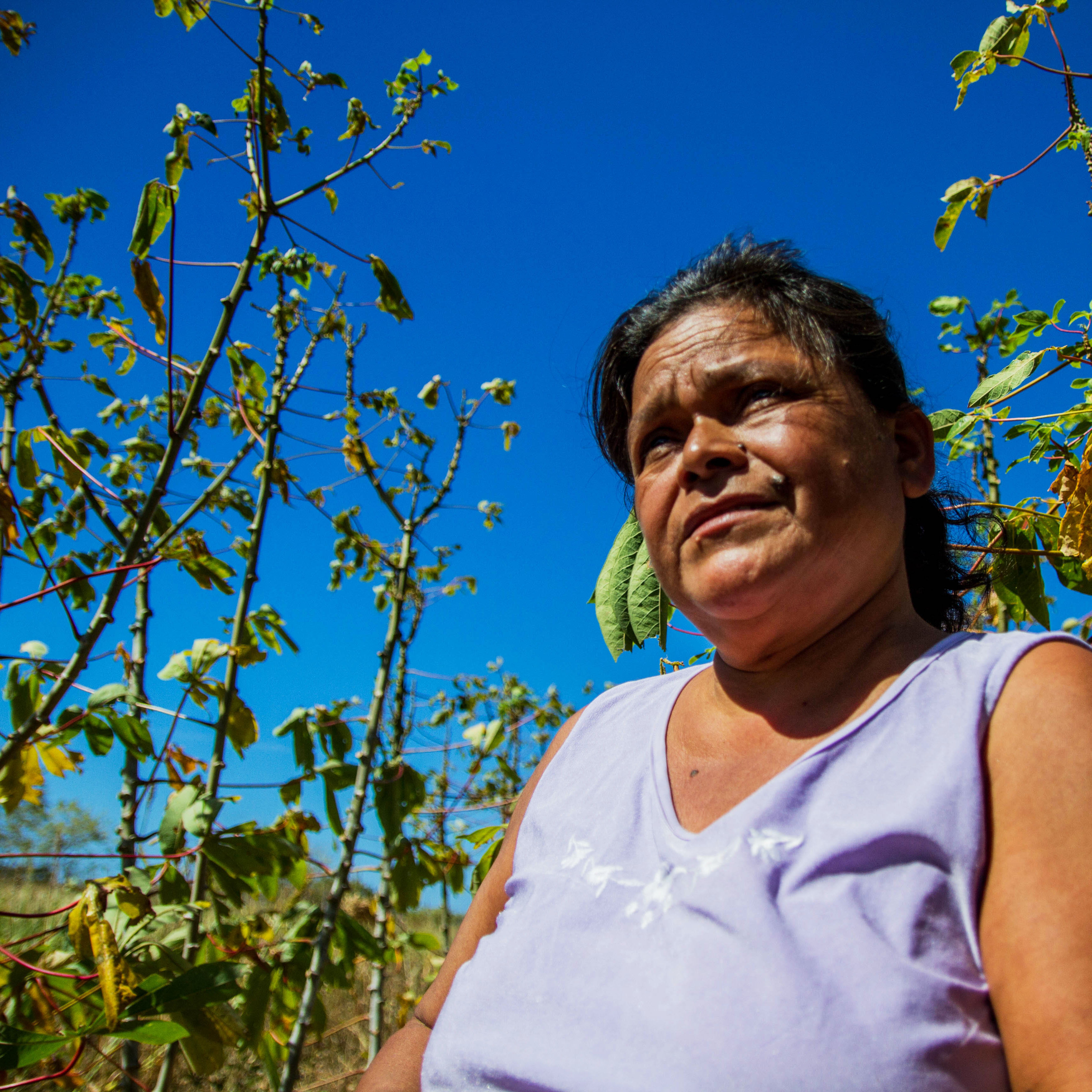Stories of Change

Marta stands in her yuca plot, which she planted for the first time in 2015. Photo: Amber Blake / CWS
The World Bank classifies Nicaragua as the second poorest country in Latin America and the Caribbean.
Source: World Food Programme
An agricultural pioneer in Nicaragua
For Marta Gutierrez, the last five years of drought in the Carazo region of Nicaragua have taken a toll. Having lived on La Vanilla farm for 16 years with her husband and four children, she has seen firsthand Carazo’s rising agricultural challenges, which include increasingly limited water supplies, a continually elongating dry season due to climate change, a regional tradition of monoculture, hurricanes and a lack of nutritional produce.
These challenges hit home in Marta’s life. Her husband spends two weeks each month traveling to the Costa Rican border, which is five hours away, to farm in more a productive environment. Even in his absence, though, Marta is not alone. She is working with CWS partner CIEETS to tackle local agricultural challenges one plant at a time while leading community conversations about successful and harmful growing practices.
Before the drought, Carazo had a six-month dry season and a six-month wet season. Now, the wet season has been shortened to as few as two months. As soil changes with the drought, bean production – a staple of the region – has declined drastically. Marta is pioneering the growing of new plants, especially ones that will grow into the dry season. She is the first person from her community to grow yuca to test whether its drought-resistant properties make it an effective replacement for her dwindling bean production. So far, this test has been successful – her plot is yielding 2,000 pounds of yuca!
Marta has also worked with CIEETS over the last few years to plant fruit trees in what was once treeless pasture land. This diversifies her diet, adding fruit, and the trees also help to retain water in the longer dry season.
Marta is one of 11 community leaders in her area of Carazo. She is sharing her experience and stem cuttings to help other farmers in the region build agricultural contingency plans. She is not the only female leader in the region, either: more than half of the community leaders are women. When asked if being a woman in a leadership role is difficult, Marta grins and says that it is much easier than running a farm by herself.
